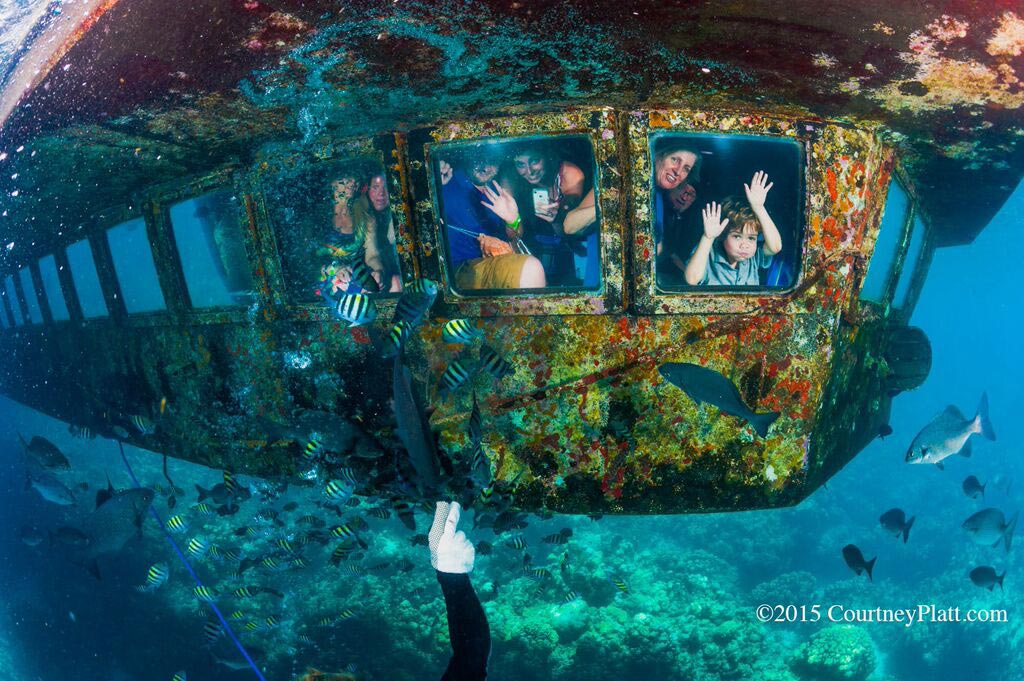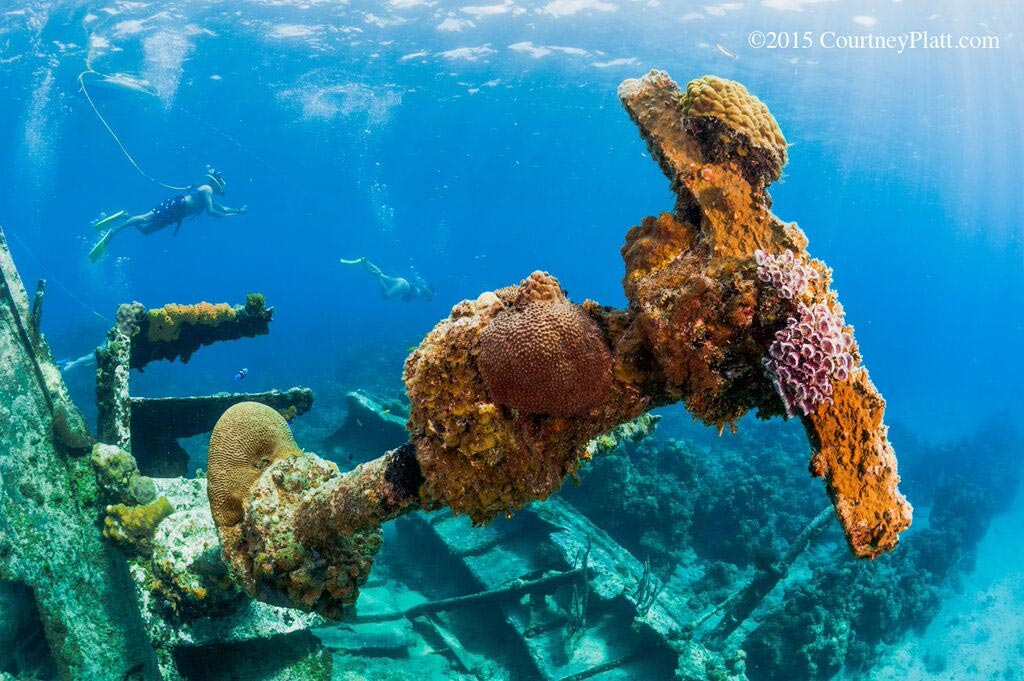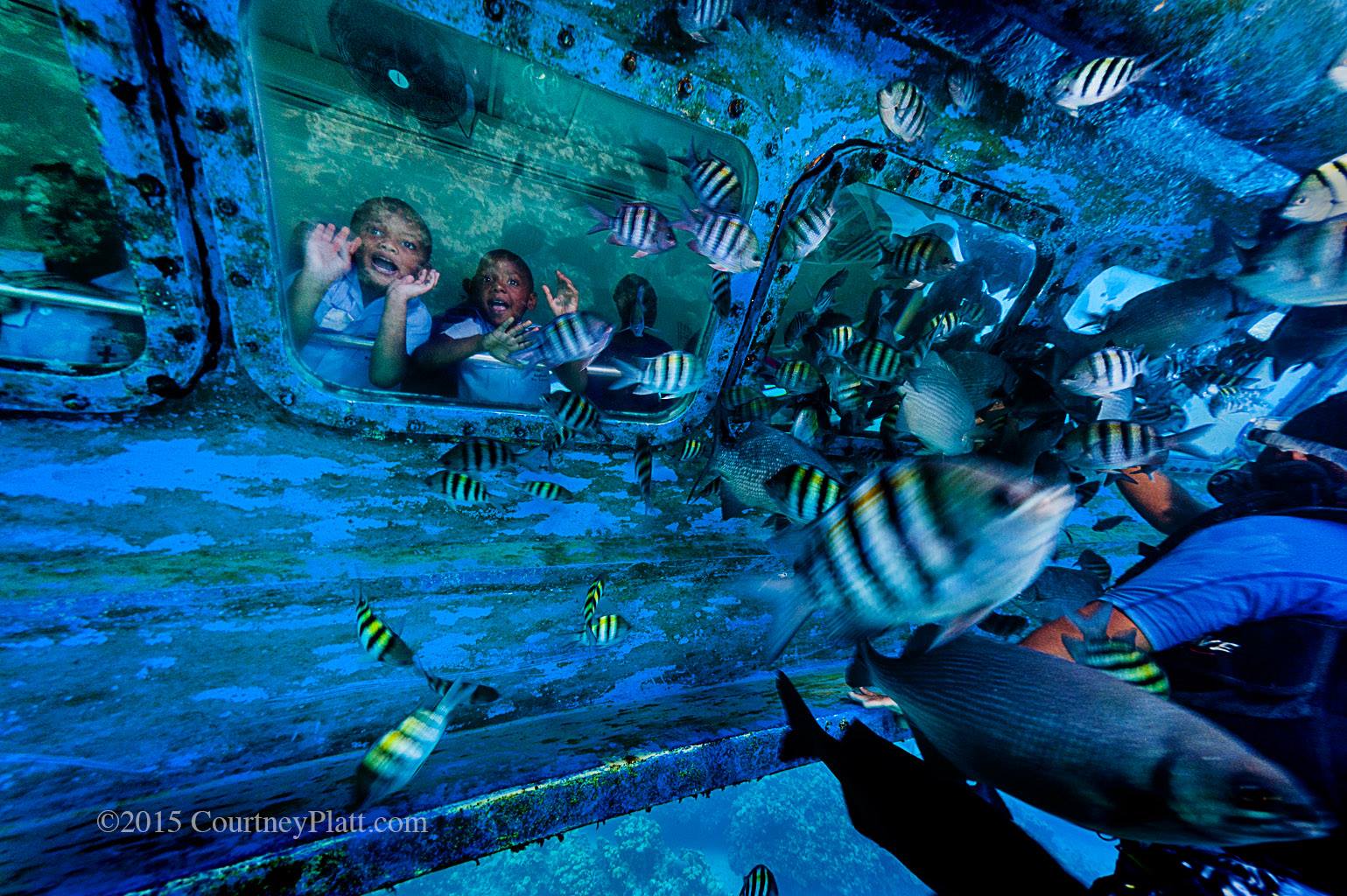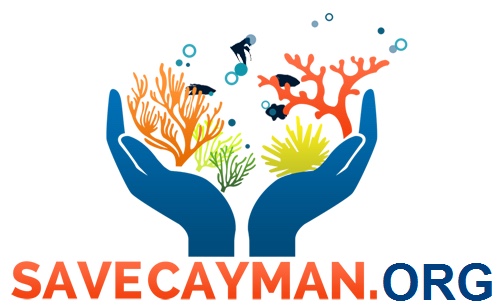Marine Life & Conservation
Head of Cayman Islands Department of Environment Urges Extreme Caution before Moving Forward with Controversial Cruise Berthing Plan
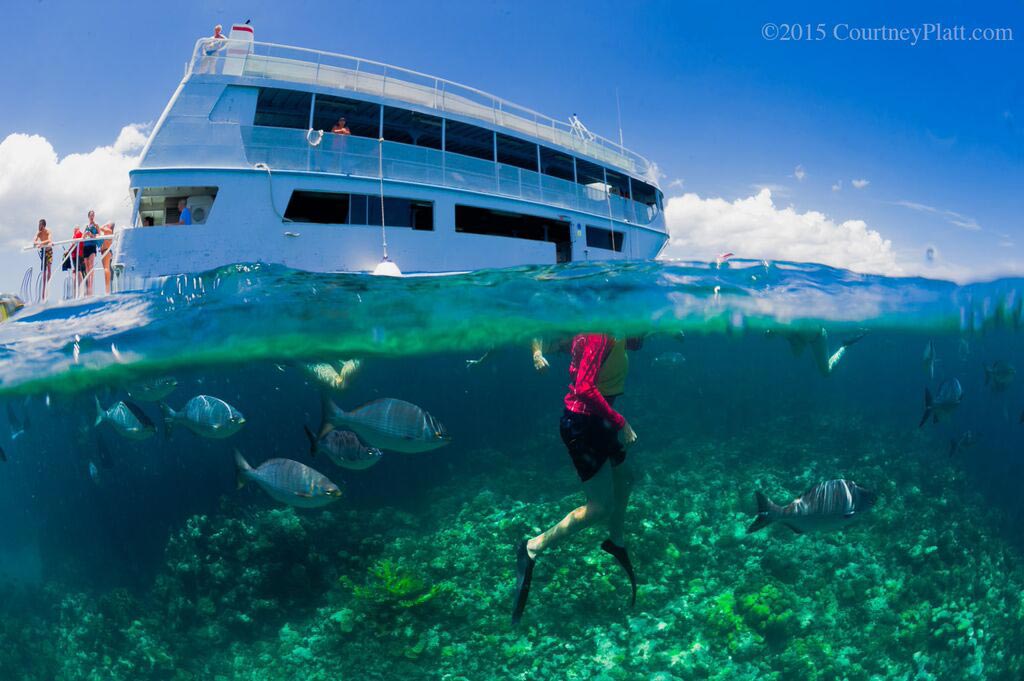
Since its release in early June, an Environmental Impact Statement (EIS) has been at the center of the heated debate over economic and environmental costs associated with the proposed port in George Town Harbor. Director of the Cayman Islands Department of the Environment Gina Ebanks-Petrie, who also headed the Environmental Assessment Board (EAB) that coordinated the impact study, is urging extreme caution before moving ahead with the project and pleading with decision makers and the public to take a closer look at what’s at stake.
The EIS projects that 15 acres of protected coral reefs will be destroyed by construction and dredging, and another 15 acres are at risk. Lost will be the exceptional underwater visibility that Cayman is world-renowned for. George Town Harbour is one of the few working ports in the Caribbean, if not the only one, with crystal clear water and vibrant coral reefs within easy access of the cruise ships’ anchorage.
The reefs, which include Soto’s Reef, Eden Rock and the Wreck of the Balboa, are so unique because it is rare to find such well developed, high relief reefs so close to, and easily accessible from shore. These reefs have also been protected under the Marine Parks system for over 25 years so fish life is abundant and diverse. These are two of the main factors which contribute to a bustling watersports scene in the harbor. Scuba diving, snorkeling, submarine trips, glass bottom boat excursions are offered primarily for cruise ship passengers.
“If the additional 15 acres of reefs disappear, or are no longer useable because they are dead or water clarity is so poor, it will be extremely difficult to find other similar sites which could easily absorb the displaced businesses and visitors, particularly given the cruise ships’ limited time in port,” says Ebanks-Petrie. “Possible alternative options for snorkeling, like Stingray City, are already over-subscribed and under tremendous stress as a result.”
The loss of these reefs has huge implications for the Cayman Islands on an international level. The Department of Environment has heard from international agencies and individuals during the public consultation process, and Gina Ebanks-Petrie says the vast majority urged the country not to proceed with the project because of the permanent and irreversible damage. For example, the President and CEO of PADI Worldwide “implores the Cayman Islands Government to cease plans to initiate this project and seek alternative solutions to mitigate the situation and not destroy the priceless natural underwater assets belonging to Grand Cayman Island”.
“In addition to the obvious impact of the loss of these world-famous dive sites on our dive tourism product, the biggest impact will likely be on our reputation as a jurisdiction with a long history of valuing and prioritizing the protection of its marine environment,” she said.
“Coral reefs all over the world are under serious threat on various fronts: coastal development, over-fishing, sedimentation, climate change, etc. Marine scientists are agreed that we need to take all possible steps to protect remaining reefs at the same time as taking corrective action to address the threats, both locally and globally,” added the DOE director.
Cayman’s watersports operators and local environmentalists, alarmed by the projected damage to the reefs and dive sites have organized under the banner of SaveCayman.org to fight the project and raise awareness in the community. Dock supporters point to mitigation options outlined in the EIS report, but Ebanks-Petrie cautions against misinterpreting the report.
“The pro-port side seems to take comfort from these mitigation options, but what is being missed, or glossed over, is that the environmental study also assesses the effect of those measures, and the consultants judge that they will have little or no effect on reducing the severity of the impacts,” she said. “The public and decision makers need to remember that “mitigation” of an impact does not equal complete removal of the impact, and they should focus on the severity of the predicted residual impact i.e. those impacts which remain even after the use of mitigation measures.”
“For example, the consultants score the impact of dredging on water quality in George Town Harbour (GTH) as a Significant negative impact (-D) and this remains a Significant Negative impact (-D) after the application of the recommended mitigation measure – the installation of silt curtains,” she explains. The same applies to the possible relocation of the historic Wreck of the Balboa.
Consultants classify the destruction of coral reef during dredging in the highest tier of negative impacts – a Major negative impact (-E). Following implementation of the recommended mitigation measure – the coral relocation programme – it is still classified as a Significant Negative Impact (-D).
“Even with these proposed mitigation measures, that come with a significant price tag, the resulting situation is still extremely dire, and this seems to be lost in the sound bites being heard in the news,” said Ebanks-Petrie.
“The Department of Environment fully acknowledges the contribution that cruise tourism makes to the economy, and the need to upgrade and improve the arrival and departure experience of cruise visitors. However, after careful consideration of the environmental losses and the risk to the overall tourism product associated with berthing facilities, our view is that a scheme of appropriate landside enhancements would offer the best solution.”
Ebanks-Petrie says the Environmental Statement has attempted to place a dollar value on the economic losses associated with the destruction of the George Town Harbour reefs and the Statement recommends that these preliminary estimates are appropriately incorporated into the updated Business Case.
“The Environmental Impact Assessment and Environmental Assessment Board’s review of it are stunningly clear and shows that the government should not approve the plan as described,” says Dr. Ellen Prager, marine scientist and author who has been outspoken against the project. “The reefs and the wreck lost to dredging and sedimentation associated with dredging cannot be relocated or transplanted, and it is unclear what other unintended consequences to other nearshore habitats and environments will occur.”
Ebanks-Petrie says moving forward, given the projected cost of the project, it is critical that the predicted economic benefits of the berthing facility are based on real data and factual information and that the economic business case does not rely solely on assumptions, speculation and the opinions of those persons directly involved in the cruise tourism industry.
“From where I sit, the economic business case does not appear to have been held to the same standard of actual data collection and robust analysis and scrutiny as the environmental impact assessment; I see this as a significant problem for decision-makers,” said the head of the Department of Environment.
“It is our mission to inform and educate the public about Cayman’s fragile environment and to try to ensure that decisions made today, which will impact future generations, are based on accurate facts,” says Keith Sahm who is spearheading Save Cayman. “Once the decision is made, Cayman will have to deal with the consequences.”
About Save Cayman
Save Cayman (www.savecayman.org) is a grassroots organization of individuals who share a mission to protect the underwater environment of the Cayman Islands, while promoting sustainable tourism for future generations. It was formed by concerned individuals responding to an Environmental Impact Assessment (EIA) that projected the destruction of coral reefs in advance of the government-proposed cruise berthing facility in George Town harbour.
Marine Life & Conservation
Double Bubble for Basking Sharks

 The Shark Trust is excited to announce that, for two more days only, all donations, large or small, will be doubled in the Big Give Green Match Fund!
The Shark Trust is excited to announce that, for two more days only, all donations, large or small, will be doubled in the Big Give Green Match Fund!
Donate to Basking in Nature: Sighting Giants
The Shark Trust is hoping to raise £10k which will be doubled to £20k. This will go towards Basking in Nature: Sighting Giants. And they need YOUR help to reach they’re goal.
The Shark Trust’s citizen science project is to monitor and assess basking sharks through sightings; encouraging data collection, community engagement, and promoting nature accessibility. This initiative aims to enhance health and wellbeing by fostering a deeper connection with British Sharks.
Campaign Aims
- Increase citizen science reporting of Basking Sharks and other shark sightings to help inform shark and ray conservation.
- Provide educational talks about the diverse range of sharks and rays in British waters and accessible identification guides!
- Create engaging and fun information panels on how to ID the amazing sharks and rays we have on our doorstep! These can be used on coastal paths around the Southwest. With activities and information on how you can make a difference for sharks and rays!
- Promote mental wellbeing through increasing time in nature and discovering the wonders beneath the waves!
Donate, and double your impact. Click Here
Marine Life & Conservation
Leading UK-based shark conservation charity, the Shark Trust, is delighted to announce tour operator Diverse Travel as a Corporate Patron

 Corporate Patrons provide a valuable boost to the work of The Shark Trust. The Trust team works globally to safeguard the future of sharks, and their close cousins, the skates and rays, engaging with a global network of scientists, policymakers, conservation professionals, businesses and supporters to further shark conservation.
Corporate Patrons provide a valuable boost to the work of The Shark Trust. The Trust team works globally to safeguard the future of sharks, and their close cousins, the skates and rays, engaging with a global network of scientists, policymakers, conservation professionals, businesses and supporters to further shark conservation.
Specialist tour operator Diverse Travel has operated since 2014 and is committed to offering its guests high quality, sustainable scuba diving holidays worldwide. Working together with the Shark Trust will enable both organisations to widen engagement and encourage divers and snorkellers to actively get involved in shark conservation.
“Sharks are truly at the heart of every diver and at Diverse Travel, we absolutely share that passion. There is nothing like seeing a shark in the wild – it’s a moment that stays with you forever!” says Holly Bredin, Sales & Marketing Manager, Diverse Travel.
“We’re delighted to celebrate our 10th year of business by becoming a Corporate Patron of the Shark Trust. This is an exciting partnership for Diverse and our guests. We will be donating on behalf of every person who books a holiday with us to contribute towards their vital shark conservation initiatives around the world. We will also be working together with the Trust to inspire divers, snorkellers and other travellers to take an active role – at home and abroad – in citizen science projects and other activities.”
Paul Cox, CEO of The Shark Trust, said:
“It’s an exciting partnership and we’re thrilled to be working with Diverse Travel to enable more divers and travellers to get involved with sharks and shark conservation. Sharks face considerable conservation challenges but, through collaboration and collective action, we can secure a brighter future for sharks and their ocean home. This new partnership takes us one more valuable step towards that goal.”
For more information about the Shark Trust visit their website here.
For more about Diverse Travel click here.
-

 News3 months ago
News3 months agoHone your underwater photography skills with Alphamarine Photography at Red Sea Diving Safari in March
-

 News3 months ago
News3 months agoCapturing Critters in Lembeh Underwater Photography Workshop 2024: Event Roundup
-

 Marine Life & Conservation Blogs2 months ago
Marine Life & Conservation Blogs2 months agoCreature Feature: Swell Sharks
-

 Blogs2 months ago
Blogs2 months agoMurex Resorts: Passport to Paradise!
-

 Blogs2 months ago
Blogs2 months agoDiver Discovering Whale Skeletons Beneath Ice Judged World’s Best Underwater Photograph
-

 Gear Reviews3 months ago
Gear Reviews3 months agoGear Review: Oceanic+ Dive Housing for iPhone
-

 Marine Life & Conservation2 months ago
Marine Life & Conservation2 months agoSave the Manatee Club launches brand new webcams at Silver Springs State Park, Florida
-

 News3 months ago
News3 months agoWorld’s Best Underwater Photographers Unveil Breathtaking Images at World Shootout 2023


